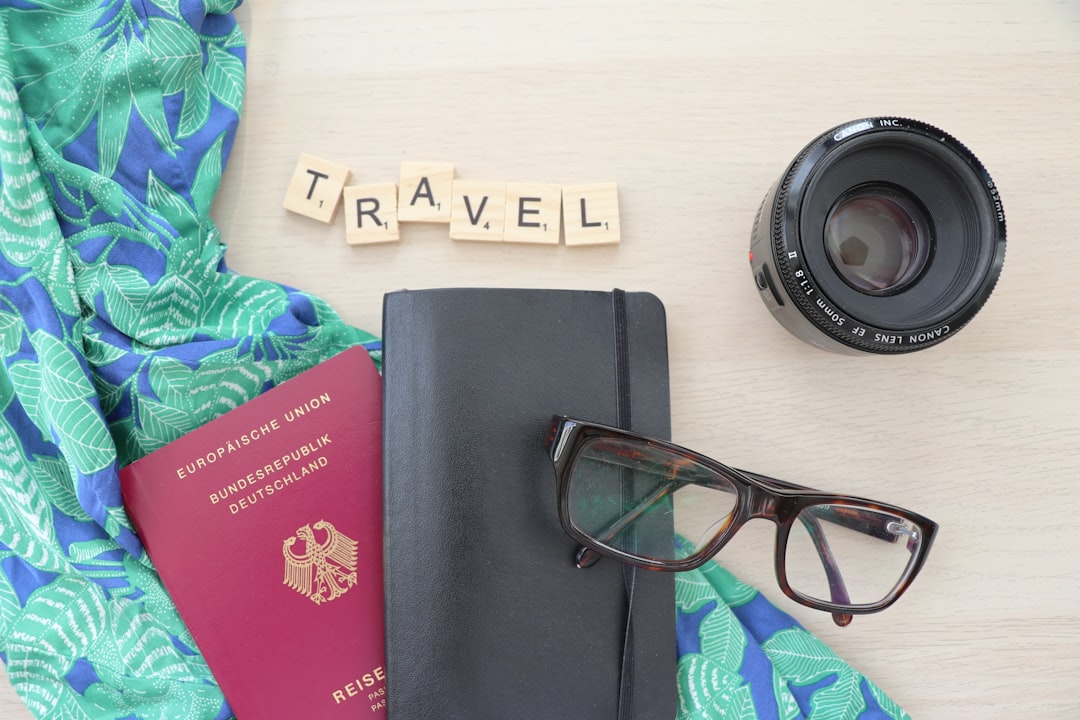Mastering Finance Taxes and Legal Strategies for Digital Nomads

Introduction
The digital nomad lifestyle promises freedom, adventure and the ability to work from anywhere with an internet connection.
That promise comes with a hidden layer of complexity that many newcomers overlook: finance, taxes and legal compliance.
When you are not tied to a single country, the rules that govern where you pay tax, how you protect your assets and which legal entities you should use can change every few months.
This guide pulls together the most important concepts, practical steps and offshore strategies that allow a digital nomad to keep more of what they earn, stay on the right side of the law and build a resilient financial foundation while travelling the world.
The Nomadic Tax Mindset
Before diving into specific jurisdictions or structures, it helps to internalize a few core principles that shape every decision.
-
Tax residency is a fact, not a feeling – A country determines residency based on objective criteria such as days present, centre of vital interests or a formal registration. Your personal sense of belonging does not affect the tax bill.
-
Source of income matters – Some jurisdictions tax worldwide income, others tax only income earned within their borders. Knowing where the income is generated is as important as where you live.
-
Double taxation treaties are powerful tools – Treaties can reduce or eliminate tax on the same income in two countries. Understanding treaty networks helps you choose the optimal residence.
-
Compliance is cheaper than penalties – The cost of a professional accountant or legal adviser is modest compared with fines, interest and the reputational damage that result from late filings.
-
Flexibility is a competitive advantage – The ability to move quickly between residency options or corporate structures can protect you from sudden regulatory changes.
With these ideas in mind, let’s explore the practical steps to design a tax‑efficient and legally sound nomadic life.
Mapping Your Current Situation
Start with a clear snapshot of where you stand. This “baseline audit” will guide every later decision.
Personal Information
| Item | Details |
|---|---|
| Home country (birth) | |
| Current passport(s) | |
| Countries lived in the past 5 years | |
| Days spent in each country last year | |
| Primary source of income (client, employer, platform) | |
| Types of income (salary, freelance, royalties, dividends) | |
| Existing legal entities (LLC, corporation, trust) | |
| Current bank accounts and jurisdictions | |
| Health insurance coverage | |
| Social security contributions |
Financial Overview
| Category | Amount (USD) |
|---|---|
| Annual gross income | |
| Estimated tax paid last year | |
| Savings / emergency fund | |
| Investments (stocks, crypto, real estate) | |
| Outstanding debts | |
| Monthly living expenses (average) |
Legal Obligations
- Tax filings required in your home country?
- Social security contributions required?
- Any visa or residency permits that need renewal?
Write down the answers. This audit will reveal gaps—such as missing tax filings or insufficient health coverage—that you must close before you can focus on optimization.
Choosing a Tax Home
A “tax home” is the jurisdiction where you are considered a tax resident for a given tax year. Selecting the right one balances three factors: low or zero tax rates, political stability, ease of compliance and personal lifestyle preferences.
Common Residency Strategies
-
Physical Presence Rule – Most countries use a 183‑day rule. Spend fewer than 183 days in a high‑tax nation and you may avoid becoming a resident there.
-
Center of Vital Interests – If your family, bank accounts and primary economic activities are concentrated in a particular country, that country may claim residency even if you spend less than 183 days.
-
Territorial Tax Systems – Countries such as Panama, Georgia and Costa Rica tax only income earned within their borders. If you earn abroad, you can often live there with little to no personal income tax.
-
Non‑Dom Status – The United Kingdom offers a “non‑dom” regime that allows foreign‑sourced income to be taxed only when remitted. This can be attractive for high‑earning freelancers who keep earnings offshore.
-
Citizenship by Investment – Some jurisdictions (St Kitts & Nevis, Malta, Cyprus) grant citizenship or residency through a financial contribution, giving you a stable tax base and travel benefits.
Evaluating Candidate Countries
| Country | Tax Regime | Residency Requirement | Political Stability | Ease of Banking |
|---|---|---|---|---|
| Portugal | 20 % flat on qualifying income, Non‑Habitual Resident program | 183 days or “effective” residence | High | Good |
| Georgia | 1 % tax on corporate profit, no personal income tax for foreign‑sourced income | 1 year registration, 183 days optional | High | Excellent |
| United Arab Emirates | 0 % personal income tax | 30‑day visit, can obtain remote‑work visa | High | Strong |
| Mexico | Progressive rates up to 35 % | 183 days | Medium | Good |
| Thailand | Progressive rates up to 35 % | 180 days + long‑term visa | Medium | Moderate |
Pick a primary residency that aligns with your income profile and lifestyle. Many digital nomads maintain a “home base” in a low‑tax jurisdiction while traveling on short‑term tourist visas elsewhere.
Offshore Corporate Structures
Running your business through an offshore company can separate personal and business income, provide asset protection and facilitate tax planning. Below are the most common structures and how they fit a nomadic lifestyle.
International Business Company (IBC)
- Typical jurisdictions – Belize, Seychelles, British Virgin Islands.
- Key features – No corporate tax on foreign‑sourced income, minimal reporting, easy incorporation.
- Use cases – Freelance consultants, e‑commerce sellers, SaaS owners.
Limited Liability Company (LLC) in the United States
- Why choose it – Familiar legal framework, access to US banking, ability to elect pass‑through taxation.
- Best for – Contractors working with US clients, platforms that require a US entity.
Private Limited Company (Ltd) in the United Kingdom
- Advantages – Strong legal system, extensive treaty network, ability to claim “non‑dom” status.
- Considerations – Must file annual accounts, annual confirmation statement, corporation tax return.
European Holding Company
- Structure – Set up a holding entity in a low‑tax EU jurisdiction (e.g., Cyprus, Malta) that owns subsidiaries in higher‑tax countries.
- Benefit – Use EU directives to eliminate withholding tax on dividends and interest between EU entities.
Trusts
- Purpose – Asset protection, estate planning, privacy.
- Common jurisdictions – Cook Islands, Nevis, Singapore.
- Note – Trusts are not a substitute for tax residency; they must be reported where required.
Selecting the Right Structure
| Factor | IBC | US LLC | UK Ltd | EU Holding | Trust |
|---|---|---|---|---|---|
| Simplicity | High | Medium | Medium | Medium | Low |
| Tax Transparency | Low | High (pass‑through) | High | Medium | Low |
| Banking Access | Moderate | High (US) | High (UK) | High (EU) | Low |
| Legal Protection | Moderate | Moderate | High | High | High |
| Cost of Setup | Low | Medium | Medium | Medium | High |
For most solo digital nomads, an IBC combined with a personal bank account in a stable jurisdiction offers the best balance of flexibility and cost. If you have significant US client revenue, a US LLC may simplify invoicing and tax reporting.
Managing Income Streams
Digital nomads earn from a variety of sources. Each type has its own tax treatment and reporting requirements.
Salary from Remote Employer
- Withholding – Employer may withhold tax based on your declared tax residency.
- Action – Provide the employer with a tax residency certificate (if available) from your chosen low‑tax country.
Freelance/Consulting Fees
- Typical classification – Self‑employment income, subject to personal income tax and possibly self‑employment tax.
- Optimization – Invoice through your offshore company. The company receives the gross amount, pays you a salary or dividend, and you benefit from corporate tax rates (often 0 % for foreign‑sourced income).
Platform Income (e.g., Upwork, Fiverr)
- Reporting – Platforms issue 1099‑K or equivalent forms to residents of certain countries.
- Strategy – Register the platform account under your offshore entity to keep the income at the corporate level.
Passive Income (Dividends, Interest, Royalties)
- Source matters – Some jurisdictions tax dividends at source; others provide treaty relief.
- Holding company – Use a holding entity in a treaty‑rich jurisdiction to receive dividends tax‑efficiently, then distribute to you as a dividend taxed at a low rate.
Cryptocurrency Gains
- Varies widely – Some countries treat crypto as property, others as currency, others as exempt.
- Best practice – Keep detailed transaction logs, consider holding crypto in a jurisdiction with clear crypto‑friendly rules (e.g., Portugal, Malta).
Record Keeping and Accounting
Accurate records are the backbone of any tax‑efficient strategy. They also protect you in case of an audit.
What to Keep
- Invoices (issued and received)
- Bank statements (personal, corporate, offshore)
- Receipts for business expenses (travel, equipment, software)
- Contracts and agreements with clients or partners
- Proof of residency (visa stamps, utility bills, rental agreements)
- Cryptocurrency transaction logs (date, amount, price, wallet addresses)
Accounting Software Options
- Wave – Free, cloud‑based, good for freelancers.
- Xero – Multi‑currency, integrates with many offshore banks.
- QuickBooks Online – Robust reporting, suitable for larger operations.
- CoinTracker – Specialized for crypto accounting.
Frequency
- Daily – Log new invoices and expenses.
- Weekly – Reconcile bank accounts, verify crypto transactions.
- Monthly – Generate profit and loss statements, review cash flow.
- Quarterly – Prepare provisional tax estimates for jurisdictions that require them.
Professional Support
Even with good software, a qualified accountant who understands international tax law is invaluable. Look for professionals with experience in:
- Non‑resident tax filings
- Offshore entity compliance (annual returns, economic substance)
- Double‑tax treaty application
A retainer of a few hundred dollars per month can save you thousands in penalties and missed deductions.
Legal Structures for Asset Protection
Beyond tax, protecting your earnings and personal assets is essential. Nomads face risks from cyber‑theft, political instability, and personal liability.
Separate Personal and Business Entities
- Keep personal savings in a different bank account from your corporate accounts.
- Use a corporate credit card for business expenses.
Incorporate in a Stable Jurisdiction
- Jurisdictions with strong legal frameworks (UK, Singapore, Hong Kong) make it harder for creditors to pierce the corporate veil.
Use a Multi‑Layer Structure
- Operating Company – Receives client payments, located in a low‑tax jurisdiction.
- Holding Company – Owns the operating company, located in a jurisdiction with robust treaty network.
- Trust – Holds the shares of the holding company, providing privacy and succession planning.
Insurance as a Protective Layer
- Professional Liability – Covers errors and omissions in consulting work.
- Cyber Liability – Protects against data breaches and ransomware.
- Travel Health Insurance – Meets visa requirements in many countries and reduces out‑of‑pocket medical costs.
Social Security and Healthcare
Many nomads wonder whether they need to contribute to a social security system and how to obtain health coverage while moving.
Home Country Contributions
- Some countries (e.g., the United States) require citizens to file even when living abroad.
- Voluntary contributions can preserve future benefits (e.g., US Social Security, Canadian CPP).
Host Country Options
- National Health Systems – Countries like Portugal and Spain offer public healthcare to residents after a short waiting period.
- Expat Insurance – International plans (Cigna Global, Bupa Global) provide coverage worldwide and can be tailored to your travel pattern.
Choosing a Strategy
- If you plan to stay long‑term in a country with a public system, register for residency and join the local scheme.
- If you hop between countries, an international private plan offers consistency and avoids gaps.
Compliance Checklist for Digital Nomads
| Item | Action |
|---|---|
| Determine tax residency | Apply the 183‑day rule and centre of vital interests test |
| Register offshore entity (if needed) | Choose jurisdiction, file articles, obtain bank account |
| Open multi‑currency bank accounts | Prefer banks with strong digital platforms |
| Set up accounting system | Install software, define chart of accounts |
| Document travel dates | Keep passport stamps, flight itineraries |
| File tax returns in home country | Use Form 1040‑NR, Form 1040, or local equivalent |
| File tax returns in residence country | Follow local filing deadlines |
| Pay estimated taxes (if required) | Quarterly payments to avoid penalties |
| Obtain health and liability insurance | Choose plan based on travel frequency |
| Review double‑tax treaty benefits | Apply treaty relief where applicable |
| Conduct annual legal review | Update entity structures, compliance policies |
Completing this checklist each year keeps you on track and reduces the risk of unexpected tax bills.
Common Pitfalls and How to Avoid Them
- Assuming No Tax Means No Reporting – Even zero‑tax jurisdictions often require annual filings (e.g., economic substance reports).
- Overlooking Source‑Based Taxation – Some countries tax income generated within their borders regardless of residency. If you do a workshop in a high‑tax country, you may owe tax there.
- Neglecting Bank Account Disclosure – Many jurisdictions require you to disclose foreign bank accounts (e.g., FATCA, CRS). Failure can trigger heavy fines.
- Mixing Personal and Business Expenses – This can invalidate deductions and raise red flags during an audit.
- Relying on One‑Year Visas – Frequent visa runs can inadvertently trigger residency in a country where you spend many days. Keep a travel log and plan stays strategically.
Action Plan for the Next 90 Days
Week 1‑2 – Conduct the baseline audit. List all income sources, current residency status, and existing entities.
Week 3‑4 – Choose your primary tax residence. Research the top three options, compare treaty networks, and decide on a jurisdiction.
Week 5‑6 – Set up or restructure your offshore entity. Register the company, open a business bank account, and connect it to your invoicing system.
Week 7‑8 – Implement accounting software. Migrate historical data, configure tax codes for your chosen jurisdiction, and schedule recurring reconciliations.
Week 9‑10 – Secure insurance coverage. Obtain a comprehensive health plan and a professional liability policy.
Week 11‑12 – File any outstanding tax returns in your home country and your new residence. Submit estimated tax payments if required.
Week 13 – Review the entire system with a qualified international tax adviser. Make adjustments based on their feedback and document the final structure.
Following this timeline will move you from a “tax‑uncertain” state to a well‑structured, compliant, and tax‑efficient nomadic operation.
Future‑Proofing Your Nomadic Finances
The regulatory landscape for digital nomads evolves rapidly. To stay ahead:
- Monitor treaty changes – Countries periodically renegotiate tax treaties. Subscribe to newsletters from tax advisory firms.
- Stay aware of residency law updates – Some nations tighten rules around “digital nomad visas” and may introduce minimum income thresholds.
- Diversify banking relationships – Relying on a single offshore bank can be risky if that jurisdiction imposes new restrictions.
- Consider citizenship or permanent residency – A second passport from a low‑tax jurisdiction provides stability and travel freedom.
- Invest in portable assets – Real estate in a stable jurisdiction, diversified equity portfolios, and gold can protect wealth against currency fluctuations.
Conclusion
Mastering finance, taxes and legal strategies is not a one‑time project; it is an ongoing discipline that underpins the freedom of the digital nomad lifestyle. By systematically auditing your situation, choosing an optimal tax residence, establishing the right offshore structures, keeping immaculate records, and staying compliant with both home‑country and host‑country rules, you can keep more of what you earn, protect your assets and travel with confidence.
The tools and steps outlined in this guide give you a clear roadmap. Implement them, seek professional advice where needed, and revisit your strategy regularly. With a solid financial foundation, the world truly becomes your office.
Random Posts

Mastering Light Travel Without Sacrificing Comfort
Learn how to travel light while keeping the comforts that boost productivity, health and happiness. Discover minimalist mindsets, multipurpose gear and sustainable packing tricks that fit in any overhead bin without compromise.
2 months ago

Essential Tools for Nomads From Planning to Daily Operations
Discover the must-have apps, services, and gear that turn a nomad's chaotic travel into a smooth routine, from choosing the perfect city with Nomad List to managing finances, connectivity, and health on the road.
1 month ago

How to Travel Light While Embracing Minimalism
Travel light, live free: minimalism trims your bag, boosts spontaneity, sharpens focus, and cuts your eco footprint. Learn the mindset, tools, and steps to pack only what truly matters.
1 month ago

Boosting Productivity in Global Coworking Hubs with Seamless Connectivity
Seamless, secure internet turns coworking hubs into global productivity powerhouses, linking startups, freelancers and multinationals so work flows smoothly across teams and time zones.
1 month ago

From Clutter to Freedom A Minimalist Nomad Journey
Discover how shedding excess transforms a chaotic suitcase into a lightweight kit, boosting productivity and true freedom for digital nomads seeking simplicity and sustainable travel.
2 months ago
Latest Posts

Essential Software Every Remote Professional Should Use
Master remote work with essential tools: instant messaging like Slack, high definition video calls such as Zoom, and asynchronous voice apps. Streamline communication, stay connected and boost productivity.
1 day ago

Mastering Remote Work Productivity for Digital Nomads and Freelancers
Learn proven habits, tools, and tactics that help digital nomads and freelancers stay focused, deliver quality work, and maintain a sustainable lifestyle while traveling the world.
1 day ago

Tech‑Friendly European Towns Perfect for Remote Living
Discover Europe’s best small towns where fast internet, affordable living and vibrant tech communities let you work remotely while soaking up historic charm, lakeside views or mountain air.
1 day ago